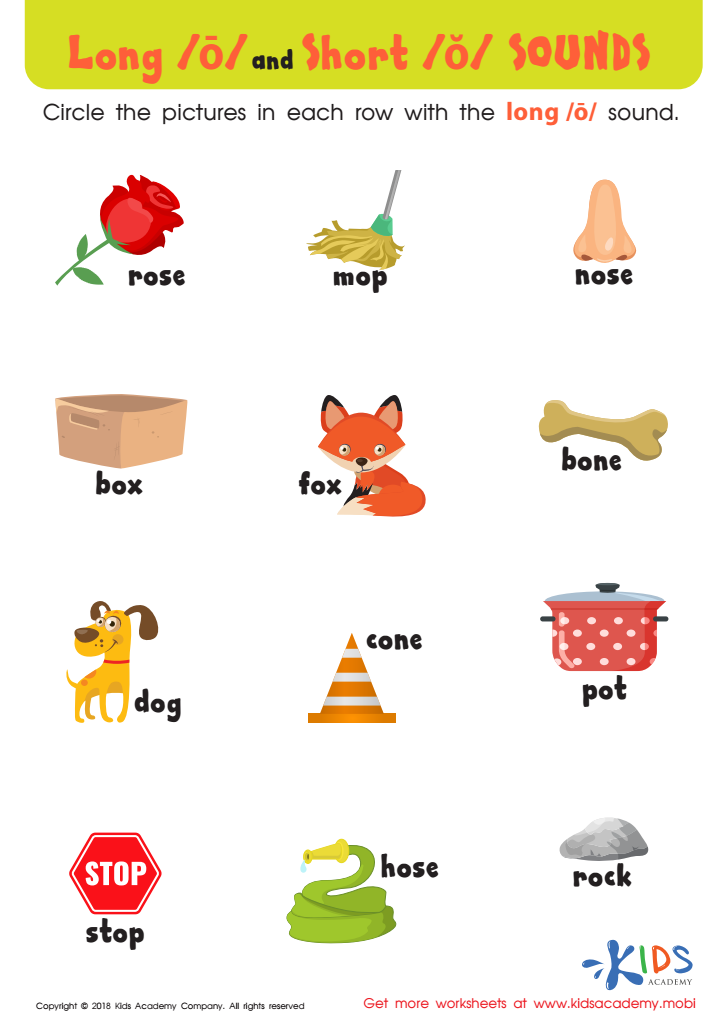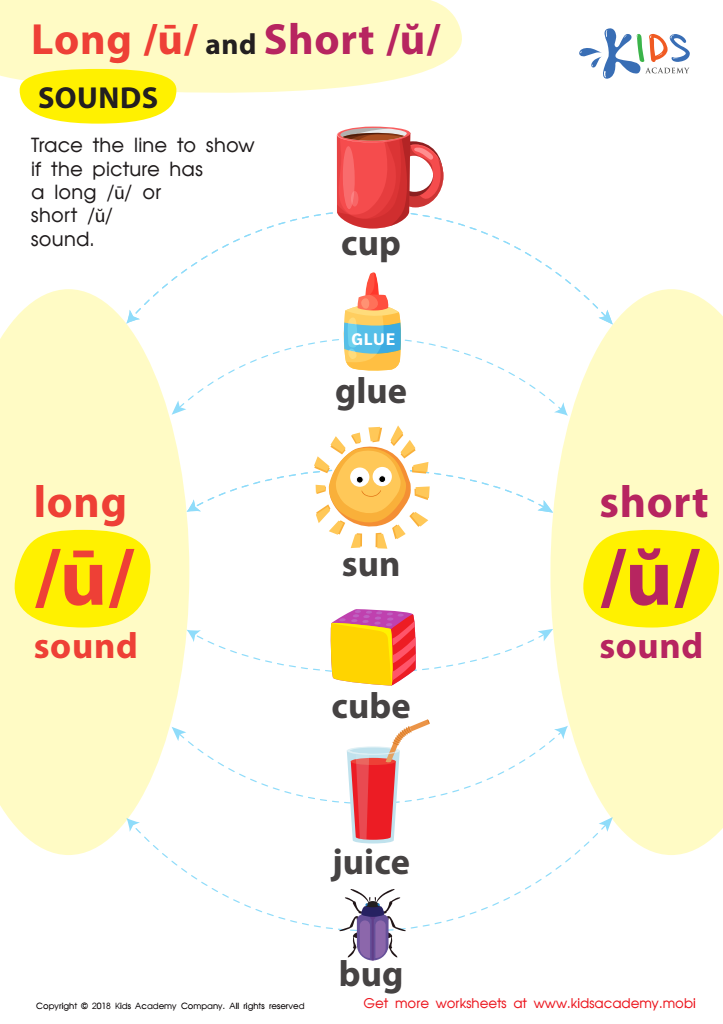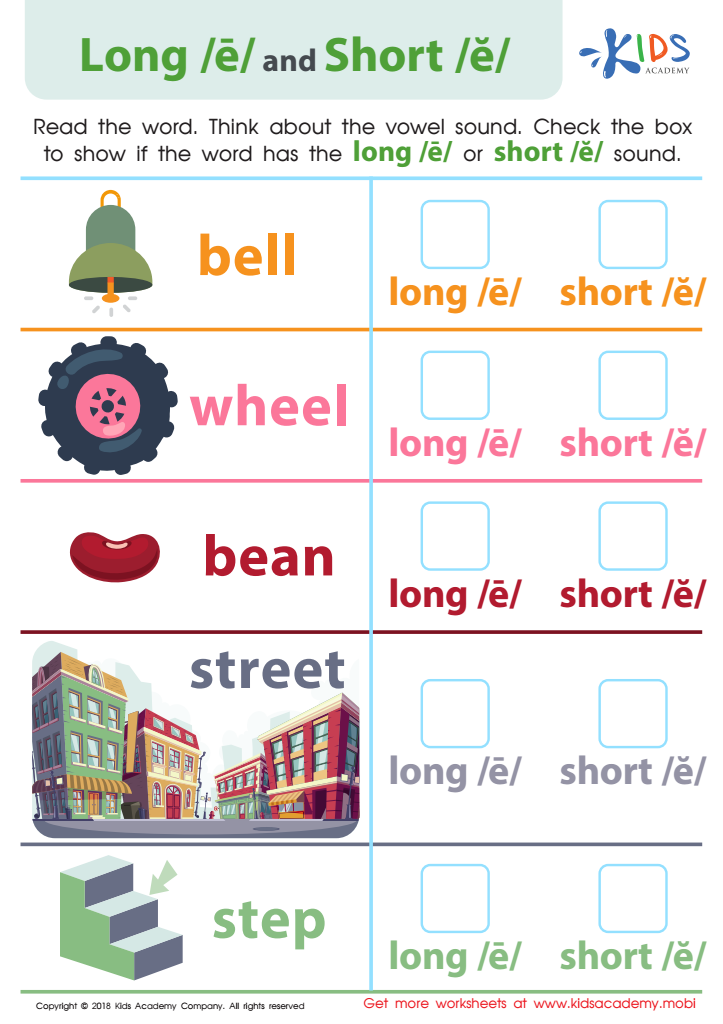Phonics Skills Normal Letter Recognition Worksheets for Ages 7-9
5 filtered results
-
From - To
Enhance your child's phonics skills with our Normal Letter Recognition Worksheets designed for ages 7-9! These engaging worksheets focus on helping young learners master letter recognition, a crucial foundational skill in reading and writing. By incorporating fun activities, our resources promote active learning, fostering an understanding of the alphabet's sounds and shapes. Parents and educators alike will appreciate the tailored exercises that cater to different learning styles, ensuring every child progresses at their own pace. Perfect for classroom use or at-home practice, our worksheets create an enjoyable environment for children to build confidence in their phonics abilities. Explore our collection today!


Reading: Long O and Short O Sounds Worksheet


Short Vowels /e/, /i/, and /u/ Worksheet


Reading: Long U and Short U Sounds Worksheet


Long Vowel Maze /o/ and /i/ Worksheet


Reading: Long E and Short E Worksheet
Phonics skills, particularly normal letter recognition, are crucial for children aged 7-9 as they serve as the foundation for reading fluency and comprehension. At this age, children are transitioning from learning to read to reading to learn, so mastering letter recognition directly impacts their ability to decode words effectively. When students can seamlessly identify letters and their corresponding sounds, they build the confidence necessary for tackling more complex texts.
Moreover, strong phonics skills contribute to broader literacy development, influencing vocabulary growth and spelling proficiency. Children who struggle with letter recognition may find themselves falling behind their peers, potentially leading to frustration and a negative attitude towards reading. This can hinder their overall academic success, as reading is integral to almost every subject area.
Parents and teachers play a vital role in fostering these skills through engaging activities that reinforce letter recognition, such as games, phonics-based reading materials, and interactive learning experiences. By prioritizing phonics skills at this developmental stage, they can empower children to become more proficient readers, set the groundwork for lifelong learning, and promote a love for literature that extends into adulthood. Thus, reinforcing letter recognition skills is essential for nurturing confident, capable readers.
 Assign to My Students
Assign to My Students















